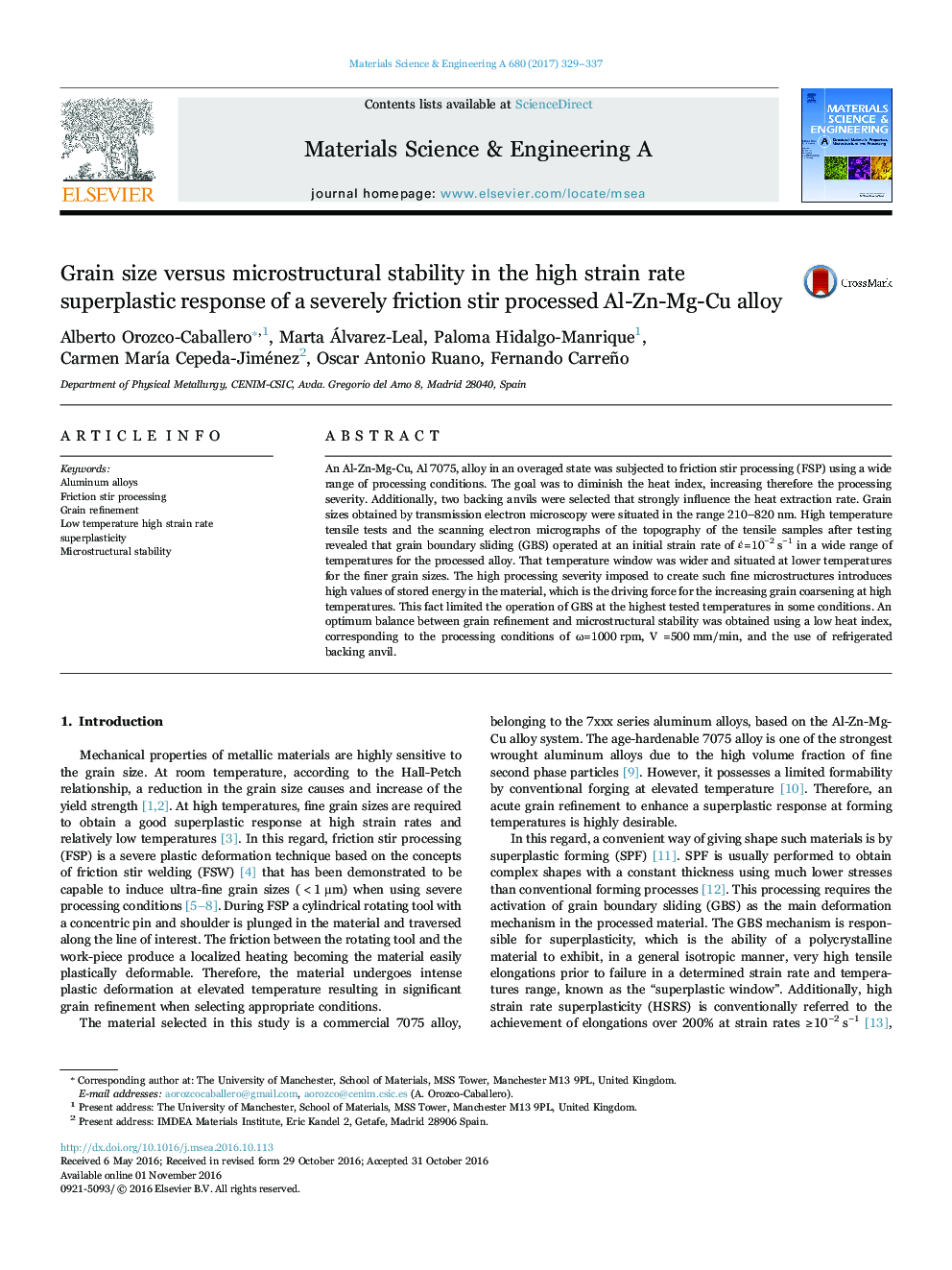| Article ID | Journal | Published Year | Pages | File Type |
|---|---|---|---|---|
| 5456775 | Materials Science and Engineering: A | 2017 | 9 Pages |
Abstract
An Al-Zn-Mg-Cu, Al 7075, alloy in an overaged state was subjected to friction stir processing (FSP) using a wide range of processing conditions. The goal was to diminish the heat index, increasing therefore the processing severity. Additionally, two backing anvils were selected that strongly influence the heat extraction rate. Grain sizes obtained by transmission electron microscopy were situated in the range 210-820 nm. High temperature tensile tests and the scanning electron micrographs of the topography of the tensile samples after testing revealed that grain boundary sliding (GBS) operated at an initial strain rate of εÌ=10â2 sâ1 in a wide range of temperatures for the processed alloy. That temperature window was wider and situated at lower temperatures for the finer grain sizes. The high processing severity imposed to create such fine microstructures introduces high values of stored energy in the material, which is the driving force for the increasing grain coarsening at high temperatures. This fact limited the operation of GBS at the highest tested temperatures in some conditions. An optimum balance between grain refinement and microstructural stability was obtained using a low heat index, corresponding to the processing conditions of Ï=1000 rpm, V =500 mm/min, and the use of refrigerated backing anvil.
Related Topics
Physical Sciences and Engineering
Materials Science
Materials Science (General)
Authors
Alberto Orozco-Caballero, Marta Álvarez-Leal, Paloma Hidalgo-Manrique, Carmen MarÃa Cepeda-Jiménez, Oscar Antonio Ruano, Fernando Carreño,
